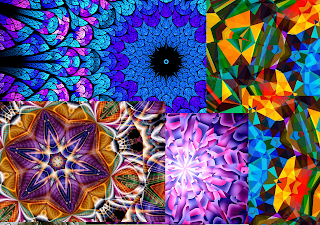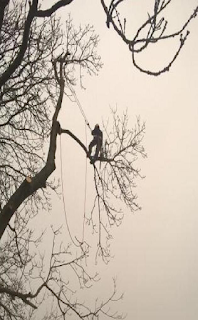The Kaleidoscope
The Kaleidoscope
I don't know what madness got into Mr. Juvenal's head. The place where he and Dona Maria lived was already the world’s end. And yet, he decided to move further away. Maria accepted because she was a woman who would accept anything, but she couldn't understand her husband's head. In part, she did. He was a hell of a hermit; it seems he feared people. For her, she didn't care. What worried her the most was the child. What would Joana, a three-year-old girl, do in such a place?
Children end up surviving everything. And Joana created her little fantasy world right there. The closest neighbors weren't close at all; they were far away.
Geronimo, however, was easier to see than the others. He was about 20 years old and followed his father's career: a backwoods traveling salesman. He brought things that people who live at the end of the world need—a little salt, seasoning, and pepper. Yes, of course, wheat flour, since cassava and corn, Maria grew them herself. Pieces of cloth, scraps, sometimes he brought them too. There was no vanity in those poor women lost in that hole. But there's always a little bit, it's anthropological.
One day, Geronimo, who liked children, brought Joana a toy. It was a gift; he didn't charge. Just imagine what, a kaleidoscope! In that colorless and tasteless place, could there be anything better? The little girl spent the whole day messing with that tube. Colors changed, changed again, and shapes changed over and over as well. Different from that endless void that was that place. Father and mother tried to see what the girl saw in such a toy. What was the fun of that? Either because it was a child's thing, or because they were weak-sighted, or because they no longer found life funny, they saw nothing. But Joana, yes. The miracle for her was that it never repeated the same pattern. How can that be? How could the painter who painted those colors paint so many things, so many endless things, without repeating any of them? It was indeed to be admired. It was the cinema she didn't know.
The kaleidoscope saved Joana's childhood. Created the color she needed. It replaced the school she didn't go to, the writing she didn't write, the letters she couldn't read.
Even in the middle of nowhere, things pass, and they passed there too. Geronimo continued to come with his junk, which was very welcome for the three of them. Other gifts he brought to the girl, yes, he did, but never anything like the kaleidoscope.
Joana arrived in her teens and became a woman when she was 13. It was a fun thing. All that occurred to her body, and simultaneously, a sadness happened in her life. Some bugs gnawed at her kaleidoscope. Then she saw what was inside. Pebbles and glassware. The good thing was that she learned there could be endless beauty in simple things like pebbles and mirrors. She didn't understand how, but she knew that was a fact.
So, she also learned that her body was sometimes mocked, but she didn't know how.
She was strongly urged to ask Geronimo for another one, but she, like her mother, had no mouth for anything. And she grew up. Then she noticed that Geronimo was different now. He had a long beard; his body was a little more curved. He was changed but still much more robust than his father, that's for sure.
Joana was seventeen years old, but she was still a child. In these places, the soul only grows as necessary. And so, it is.
She noticed that now Geronimo came more often. And he talked more with her father. Interesting that Juvenal, before, wasn't much of a talker. Maybe it's a thing of getting old.
One day, her father said that Geronimo was coming again the following week, although he had just come. It was strange because, as often as he came, it wasn't that often. And he said more, that she could choose a present, that it wouldn’t be a present from him, but a present from Geronimo. The girl didn't know that Geronimo had a crush on her, did she? Did she not understand? And it was to pack the few things she had that she could take on the horse. She should depart with him. With Geronimo, yes, sir.
Joana didn't quite understand because she was a seventeen-year-old girl and more of a girl than seventeen. Not in the body, but in the head, yes.
Geronimo, on his part, was a good man, but he didn't understand a woman's mind; he only understood her body. And the girl's body, for him, was too good, more than a caboclo like he could want—a lot more.
It's going to be good, Joana told herself in her mind. See different things. That's how her mother explained it too. And she said much more. However, she was sad because she liked her daughter. But she was happier because she could escape that hole where she never wanted her offspring to have come to start with. That would be good.
When the two, Geronimo and Joana, left on horseback, mother and daughter wept. Her father pretended he didn't cry, as he had never cried before, and he wasn't one to cry. Mother Maria cried, but she cried happily.
That's when Geronimo, embarrassed, and she didn't know why, asked what present she wanted to receive. She thought a bit but only pretended because she already knew what she wanted—a kaleidoscope. Geronimo gave a sly smile and then said she didn’t need a ring because he would give her the most beautiful kaleidoscope ever, the most beautiful in the world. Yes, he would. Joana didn't understand the wedding ring part, but the kaleidoscope part, she understood very well. And while her horse was walking alongside Geronimo's, she couldn't see anything else. Neither the stream nor the gravel on the trail nor the slight noise of the river. She just anticipated. A delicious anticipation, like a pleasure. She just saw those beautiful colors mixing, moving, multiplying in a thousand ways. And life seemed even more beautiful than it is. The pebbles and the little mirrors, which she now knew to be the secret of everything, kept getting mixed up, colorful, shiny, in an endless stirring. Little colored pebbles, like a miracle, and the little pieces of glass repeating life's fantasy. A multiplying life, a multiplying lie, in this endless, immense hinterland of God—lies of life, myriads.




Comments
Post a Comment